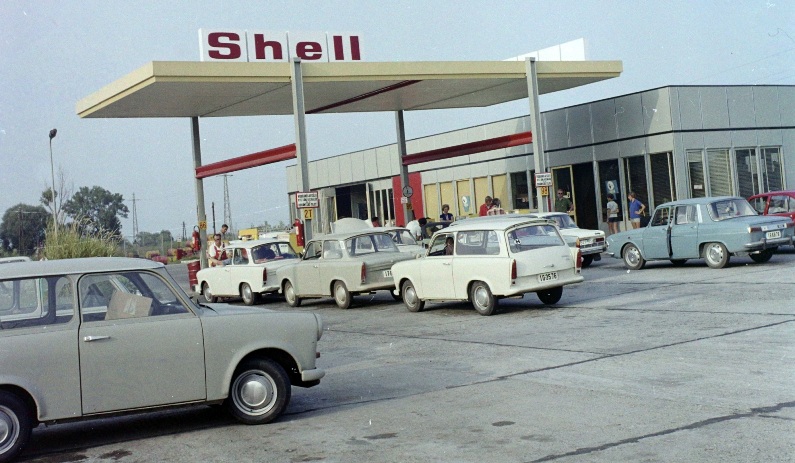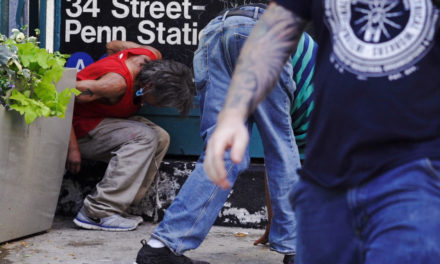The historian Zsuzsanna Borvendég's series was originally published on the PestiSrácok website, but there are certainly those who missed it. But those who haven't read all the parts should also read it again. Knowing the whole picture, can we understand how we got here?
László Gerő and the name of Interag sound familiar to many. Gerő was one of the biggest crooks in the foreign mafia of the socialist world, his "career" accompanied the system from the communist takeover to the gate of the model change. What was his secret? In addition to his lack of inhibitions, it is certainly the case that great powers stood behind him. For example, presumably the Soviet secret service as well, but the Hungarian one for sure.
A special trust of the occupiers
Gerő spent five years with his parents in the Stalinist empire between the two world wars. Even after his return home, his relationship with the Soviet bodies was not severed, since in 1945 he joined the Political Police Department (PRO) organized by Gábor Péter "After the liberation, I worked for a short time at the PRO, until , until the Soviet advisers left." he wrote in his autobiography. Later on, he was employed by the Allied Control Committee and by various Soviet economic interests and military bodies - this scope of responsibilities suggests that László Gerő enjoyed the special trust of the occupiers from the very beginning.
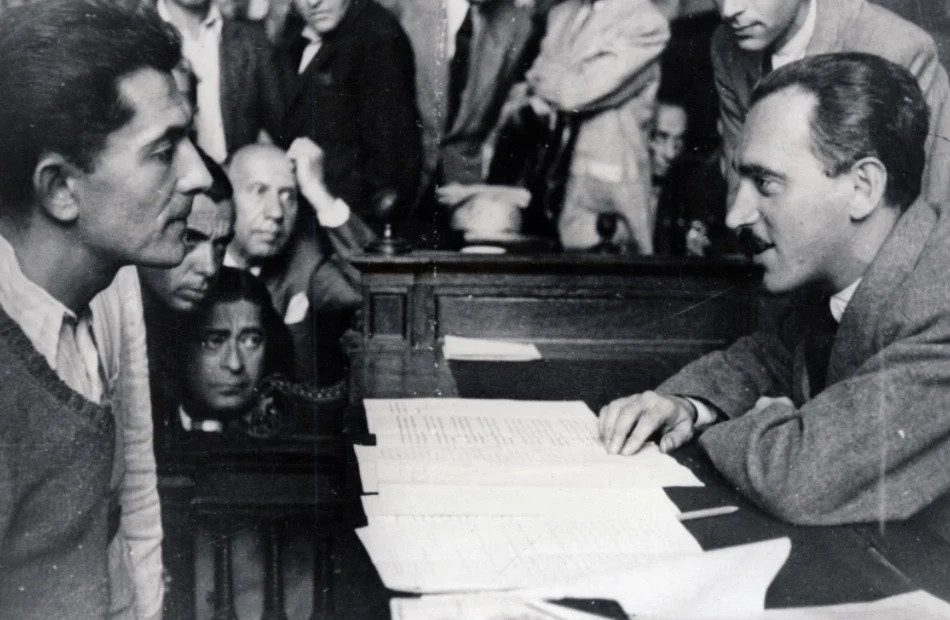
András Kun jumped out with monk Gábor Péter (photo: Fortepan.hu)
Liquidation disguised as gassing?
In the meantime, his continuous relationship with the political police was temporarily interrupted in 1950, after he was sentenced to a year for a fatal trampling. There was also a mysterious aspect behind this story, which was rumored in the ranks of the state defense and in internal party circles at the time: it was allegedly de-conspired during a liquidation operation ordered by the secret service. Although he successfully carried out the execution disguised as an accident, the authorities identified the cause of the accident and Gerő was arrested. In the case of illegal operations, the interests of the secret service and keeping the client under cover are more important than the possible loss of an "agent" , so Gerő was not exempted from court proceedings either.
After his release, he worked for various companies, according to his claim, as a civilian employee, but during the days of the revolution, he stayed in the central building of the Ministry of the Interior, and was wounded during the defense of the object - this can be seen from his state security personnel file. If you really were a civilian employee at this time, what would you have been doing in the BM building?
Although it is not possible to reconstruct exactly how he maintained contact with the state defense organization in the first half of the 1950s from the surviving documents, his actions in 1956 and his rapid state security career after the revolution suggest that the relationship between his person and the ÁVH never ceased. and completely.
He proved to be a good networker
In 1957, he was assigned to foreign trade and started organizing a commercial brokerage company. At first, we can talk about a small agency employing a few people, which became a huge holding by the mid-sixties. With indisputable talent, Gerő turned the rigid system of the dictatorship to his own advantage, his connections entangled all important institutions of the party-state hierarchy, but above all he had good relations with those circles that exercised control over foreign trade. In this series, you can already read a lot about the importance of intermediary trade, that is, re-export, about how the foreign interests used this opportunity to build a corruption network.
The establishment of a commercial mediation company in 1957 indicates that Gerő was a member of this economic mafia from the first minute , apparently during his work with Soviet economic interests after the war, he already got to know the ideological and theoretical foundations of the operation of the system.
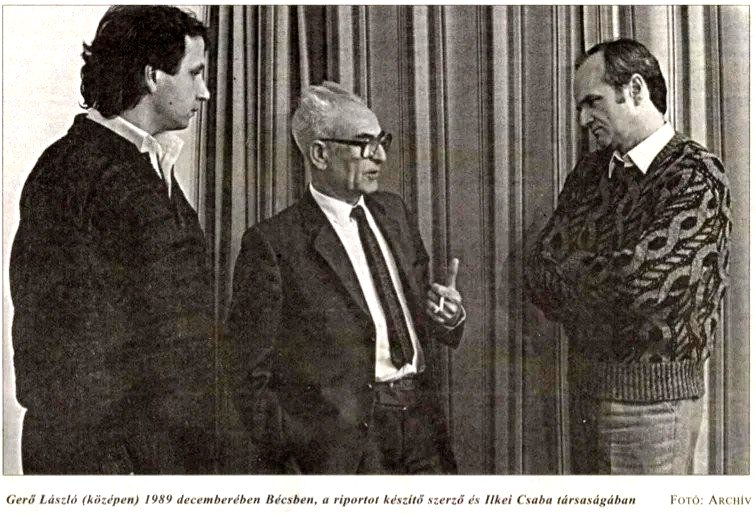
The kidnapping of Aurél Ábrányi
In the meantime, the secret service kept Gerő busy, not just in any operations. In one of the most controversial espionage cases of the 1950s and 1960s, he was entrusted with the execution of another illegal operation, this time abroad. He organized and carried out Aurél Ábrányi's home. In 1948, journalist Aurél Ábrányi was recruited by the Military Political Department after an unsuccessful "defection" attempt and settled in Vienna. In the free world, Ábrányi immediately applied to the Western secret services, from there he worked for French and American intelligence, and in the meantime organized a spy network among his friends and acquaintances who remained at home, while working as a correspondent for Radio Free Europe.
After the state security became aware of Ábrányi's "disloyalty", they liquidated his network at home and brought its members to court in the summer of 1956.
From then on, Ábrányi was considered enemy number one, and on October 12, 1961 - with the help of László Gerő - he was kidnapped from Vienna and transported home wrapped in a carpet in the trunk of a car. He was sentenced to 15 years in prison, but after his release he disappeared without a trace, we still don't know what happened to him - he was presumably murdered.
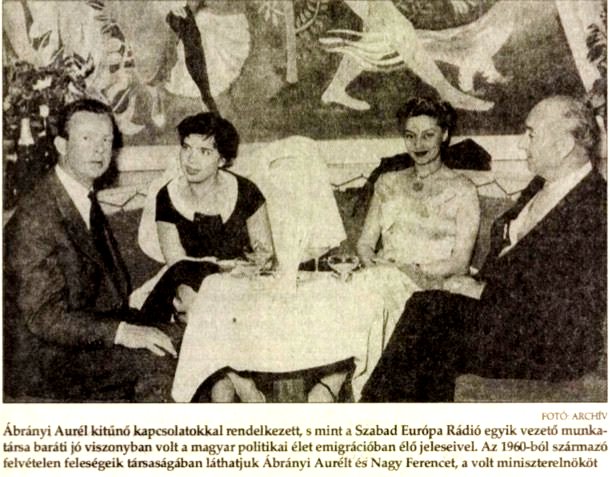
image: New Hungary, archive
Interag has arrived, the big throw
While Gerő carried out "field work" suitable for such an action film, the construction of the network of white-collar criminals was also progressing well. Gerő's invitation to organize Interag was a hit - whoever the idea came from. Wedging an intermediary company into foreign trade was a "Bolshevik trick" used for decades, but achieving as much success as Gerő produced in a short period of time was considered exceptional. His biggest draw was that in the first half of the 1960s he won the exclusive Hungarian representation of the petrochemical company Royal Dutch Shell. After nationalization in 1949, Shell reappeared in Hungary in 1960 and opened its first filling station in 1966.
Gerő worked hard for the result, as he began a powerful lobbying campaign in favor of the use of Dieldrin and Aldrin chemicals in Hungary. These two highly toxic compounds were used as insecticides during and after the Second World War, but by the 1960s it had already become clear that their use had unforeseeable consequences for both the environment and the human body. Its toxic compounds do not decompose for a long time, they enter the plants from the soil and then also the animal meat, through which they also make people sick.
Gerő brought in the prohibited pesticide
Its use was banned in several Western countries, but Gerő explained in long dissertations to the ministry's decision-makers why he should ignore the unfounded concerns and use the chemical as a plant protection agent. We have to look for the explanation of his enthusiasm in the fact that the producer of the above-mentioned two compounds was the Shell company, which was looking for new markets for its product, which was already being squeezed out in the West , and Gerő undertook to represent Shell's interests in Hungary. Obviously, his personal financial interest was the main motivation for him, since large multinational companies were willing to pay a lot of money to gain access to Eastern markets. The relationship with the socialist states was especially profitable for them if they could sell products here that were already unsellable in the West.
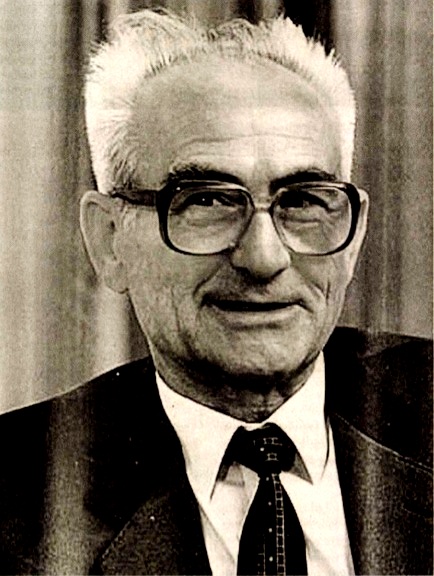
image: Magyar Hírlap, archive
They believed that even nature could be tamed
Soviet-style agriculture focused not on quality, but on yield, no price was too expensive if the plan could be met. Not to mention the fact that the preservation of the created world and the protection of the environment were considered an unknown aspect, nature was considered to be tamed in the same way as the human soul. The unlimited use of insecticides, fertilizers, and various chemicals poisoned the farmland, and the long-term consequences were not considered. Dieldrin and Aldrin were thought to be some kind of miracle drug, but the chemicals were extremely expensive, so they could not buy sufficient quantities, so the Hungarian chemical industry had been experimenting with their production for some time. However, the necessary technology was not known, so the attempts were serially failed. They also launched a special secret service operation to extract the appropriate production technology, which they relied on Gerő to organize. Although the action failed, the relationship with the multinational company remained, and Shell was able to enter the Hungarian market in the mid-1960s.
Many people probably still remember the insecticide DDT, which poisoned Hungarian lands for many years. The widespread use of this substance in Hungary was the price for László Gerő to win the trust of Shell's owners. In the West, fields were irrigated abundantly with the substance, which was banned due to its strong carcinogenic effect, for decades.
I steal, cheat, lie
Shell's exclusive representative therefore became Interag, which grew into a mammoth company thanks to this: "In 1966, the agency company with 50 employees and around 20 million fixed assets, under the leadership of Comrade Gerő, has developed into a large company with a thousand employees in the last 10 years, whose turnover in 1975 was 2 It was a billion forints." - we can read the report of the Ministry of Foreign Trade.
There is no question that Gerő worked for the state security all along : the kidnapping of Ábrányi and the operation to obtain the technology for the insecticide indicate that he was used to carry out extremely important secret operations. However, it is not clear from his personal materials in what capacity he did all this. All we know from the documents is that in 1967, László Gerő was assigned to the SZT officer's staff, and he was once again among the professional officers of the political police with the cover number D-144 and police captain number 10. They describe him as follows: "He is extremely consistent in implementing Comrade Gerő's ideas. In order to realize your ideas, if you need desks. It happened that in order to achieve otherwise correct goals, he used methods that some economic functionaries objected to." He himself commented on these less legal and ethical business steps to Zoltán Dézsy and Csaba Ilkei during a later interview: "A password was written on the facade of Interag in invisible letters: I steal, cheat, lie, so that I can serve the interests of the national economy with honor."
Source: PestiSrácok
Author: historian Zsuzsanna Borvendég
(Cover image: Fortepan.hu)

